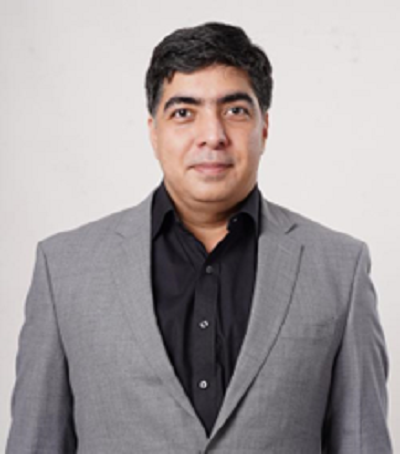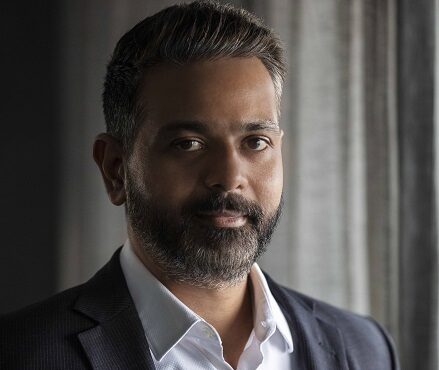Future-Ready Learning: A Conversation with Hormazd Mistry, CEO of ROI Institute India, on Synergizing Learning and Business Growth

CXOToday has engaged in an exclusive interview with Mr. Hormazd Mistry, CEO – ROI Institute India
As an HR professional, what measures do you take to ensure person-organisation fit?
Ensuring person-organization fit is pivotal. We conduct thorough interviews to assess not only skills but also cultural alignment. Our onboarding process includes orientation, training and mentorship to help newcomers acclimate. Regular feedback and career development discussions further solidify alignment between individual goals and organizational objectives.
In your opinion, what are the key skills or competencies that students need to acquire to be better prepared for the demands of the modern workforce?
Key competencies include not just technical skills but also critical thinking, adaptability, communication, and digital literacy. Additionally, students should cultivate a growth mindset and an appetite for continuous learning.
Are there any innovative approaches or models of education-industry collaboration that you believe could be more widely adopted?
Models like cooperative education (co-op) and apprenticeships have proven highly effective. Additionally, online platforms for industry-academia collaboration are gaining traction, allowing students access to real-world projects and mentors.
How can government or policy makers play a role in facilitating and incentivising collaboration between education and industry?
Policymakers can incentivize collaboration by offering grants for joint projects, tax benefits for companies investing in education, and creating frameworks for closer ties. Regulations could also encourage industry participation in educational development
What trends do you anticipate in the future of education-industry collaboration, and how should stakeholders prepare for them?
Future trends may include increased emphasis on micro-credentials and certifications, personalized learning paths, and globalized collaboration. Stakeholders should be prepared to adapt their methods and offerings accordingly.
How does the ROI Institute measure the impact of various development programmes that organisations run? Also, if you may describe the ROI methodology?
The ROI Institute gauges development program impact through a systematic 12-step process called the ROI Methodology. It begins with aligning programs with business goals, identifying necessary changes, and selecting suitable solutions. Specific measurable objectives are set, and the solution is designed and implemented. Data is collected to ensure the program’s relevance and effectiveness, followed by analysis to isolate its effects on business measures. To calculate ROI, isolated measures are converted into monetary values, costs are factored in, and intangible benefits are identified. The final step involves storytelling to communicate the results effectively. This process ensures a comprehensive evaluation and optimization of data and results for maximum benefit.
What are the skills (functional and soft skills) that you lay emphasis on?
In the realm of learning and development, the emphasis on skills varies based on organizational goals and program objectives. Key functional skills encompass technical competence, leadership and management, sales and marketing, customer service, financial literacy, cybersecurity, and project management. Soft skills, including communication, critical thinking, creativity, emotional intelligence, adaptability, resilience, leadership development, time management, networking, and cultural sensitivity, are universally prioritized. These skills collectively ensure individuals are equipped to navigate dynamic work environments, foster innovation, and contribute effectively to organizational success.
Post-Covid, what are the big changes that you observe in focus areas of L&D programmes
Post-Covid, Learning and Development (L&D) programs have adapted to remote work with a focus on digital skills, resilience, and well-being. Leadership programs address crisis management, while adaptive and microlearning methods gain popularity. Diversity, equity, and inclusion training, hybrid learning models, and digital credentials are emphasized. Continuous learning is encouraged, and data-driven decision-making utilizes analytics for program improvement. Scenario-based learning enhances critical skills, and remote onboarding becomes virtual. Cybersecurity training is prioritized, and sustainability gains attention. Global L&D programs consider cultural differences, reflecting an agile response to evolving workplace needs.
In which roles are you hiring early career professionals the most? Roles where early career professionals are least likely to quit
We’re actively hiring early career professionals in marketing, business development, data analytics, and customer support. These roles often provide a solid foundation for career growth. My experience shows that early career professionals are least likely to quit when their role aligns with their educational background and career aspirations.
What is your footprint in India, and what have been some of the programmes you have organised here?
In India, we provide tailored learning programs, offering in-person, live virtual, and self-paced options. Our flagship is the ROI Certification program, a globally recognized initiative focusing on evaluating hard-to-measure projects. The five-day, in-person course includes virtual guidance from an ROI Consultant for the first evaluation study. Completing the program earns the Certified ROI Professional designation. Additionally, we conduct one to three-day workshops in innovation, HR, sustainability, technology, healthcare, consulting, and diverse business practices, available both publicly and internally.








